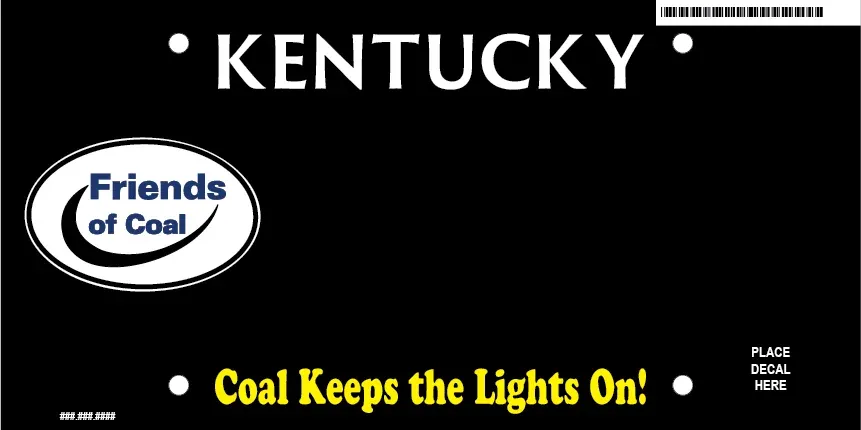I often puzzle over all the “Coal Keeps the Lights On!” license plates I see around Louisville.
Because it doesn’t.
It’s the most popular of our state’s specialty plates, with more than 24,000 of them riding around the Commonwealth. Nearly 1,400 of those are in Jefferson County, where they’re actually a distant second to the 4,500 UofL plates.
There are simple ways to explain what’s wrong with that catchy phrase, and more complicated ways. The implications of those inaccuracies go beyond just words. They reach into legislative policy in Frankfort where lawmakers craft ways to burn more coal despite its now higher costs and its devastating effects on the environment. I believe that sloganeering even plays a part in the broader social divisions we see these days in our public, and sometimes personal, lives.
The simplest flaw of those five words is that an honest slogan would be “Coal keeps some of the lights on.”
It’s not just coal that keeps the lights on
Coal generates 69% of the electricity made in Kentucky. But, natural gas generates 22%, and renewable energy almost 9%. So without those two fuels, no lights for one-third of Kentuckians.
Here’s the more complicated explanation. An electron of electricity doesn’t travel directly from a Kentucky power plant to your light bulb. Instead it gets dumped into a multi-state power grid. The electricity in your home today could be coming from Ohio or Indiana or beyond.
Because of that fact of engineering, it’s more accurate to cite the national shares of the electricity fuel mix. Here are those figures:
- Natural gas: 43%
- Renewable energy: 21%
- Nuclear: 18%
- Coal: 16%
So a more precise statement would be “Natural gas and renewable energy keeps two-thirds of the lights on, and nuclear and coal help out with the rest.”
“You’re missing the point,” you might be thinking. “The point is coal is important in Kentucky, and that coal plants can operate even when there’s no wind or sun.”
True. If there were no downsides to coal-burning power plants we could pepper the country with them to supply all our power 24-7.
But there are downsides. Huge ones.
Coal contributes to global warming
Average global temperature have been steadily rising as a result of heat being trapped in the atmosphere by the burning of coal, natural gas, and oil. For decades the scientific community has agreed those temperature increases are disrupting weather patterns with consequences like more severe weather around the world, and even flooding in Kentucky. It’s a life-changing trend for all of us that will take decades of effort to even slow, much less stop or reverse.
There are solutions. Geothermal energy doesn’t produce the global-warming greenhouse gases. We could use our energy much more efficiently. And, one of the fastest-growing energy projects is utility-scale battery installations that can store wind and solar power so that, in a way, we can have solar energy at night and electricity from wind in calm weather.
But proclaiming “Coal Keeps the Lights On!” doesn’t allow such discussions.
That one-sided thinking isn’t just on the license plates, it’s in the state capitol. For the past two sessions legislators have passed bills making it harder for utilities to close uneconomical coal plants. Even LG&E opposed those measures, saying they would raise costs for consumers.
And it reaches to national policy, where one side refers to global warming as an existential threat (a position I happen to agree with). On the other side, in Donald Trump’s speech accepting the Republican nomination for president, he boiled his energy and environmental policy down to three words: “Drill, baby, drill.”
What puzzles me the most about the popularity of that license plate is how we’ve gotten to a place where we let such sloganeering harden our hearts and numb our brains, keeping us from working with each other to resolve the thorniest issues the world faces. We see it every day: snarling proclamations stuck on bumpers, anonymously flashing across our windshields then disappearing, declaring you as either right or wrong on everything from guns to racial justice to reproductive rights to public schools to sexual orientation to the environment.
Maybe we could try adopting a four-word phrase, “Less Heat, More Light.”
--30--
-30-
Paul Wesslund is a Louisville author who writes on energy issues and for 20 years was editor of Kentucky Living magazine. He wrote the book Small Business, Big Heart—How One Family Redefined the Bottom Line, and blogs on how decency succeeds in business and in life at paulwesslund.com.







